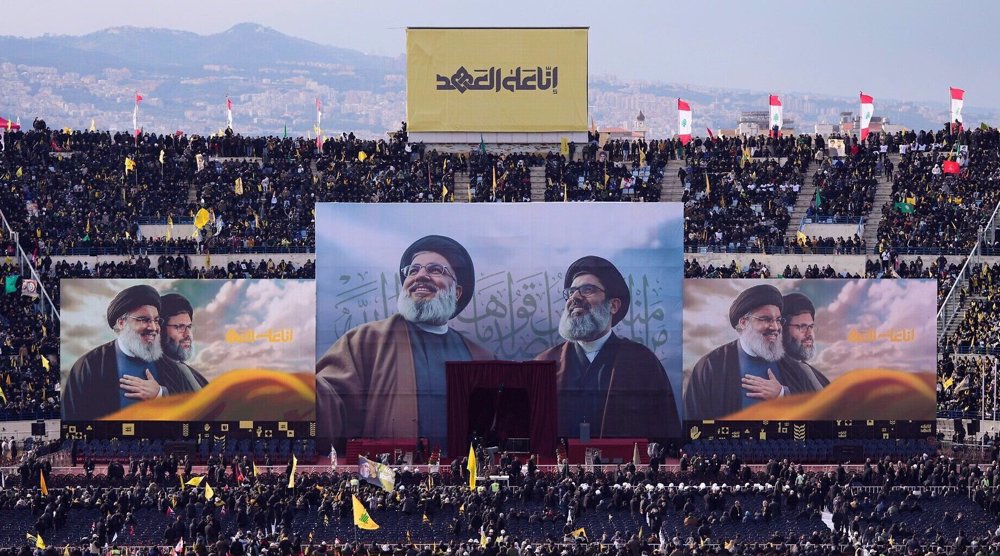Hunger-striking Palestinian inmate wins struggle over Israeli authorities, to be released in Feb.
A Palestinian hunger-striking inmate, who had refused to take his meals for 113 days, has finally won his struggle against Israeli prison authorities, who have agreed to free him next February.
According to Palestinian Shehab news agency, quoting Nahid al-Fakhouri, the director of the Prisoners Information Office on Thursday, Miqdad al-Qawasmeh has ended his long hunger strike after Israeli authority agreed to release him next February.
Al-Fakhouri noted that an agreement has been reached to release al-Qawasmi next February “after long and arduous rounds of dialogue waged by the supreme leadership body of Hamas prisoners.”
Nahid added that the head of the supreme leadership committee for Hamas prisoners, Salama al-Qatawi, and the body's foreign affairs official, Musab Abu Shkhaydam, had met al-Qawasmi at prison.
الصور الأولى بعد إعلان الأسير مقداد القواسمي انتصاره في معركة الأمعاء الخاوية pic.twitter.com/Lk6bnQtd5l
— المركز الفلسطيني للإعلام (@PalinfoAr) November 11, 2021
Earlier on Wednesday his lawyer, Jawad Boulos, quoting Israeli prisons officials, said Qawasmeh’s “can’t move even in wheelchair,” the Palestinian Information Center reported, adding that the prisoner’s immobility refutes claims by Israeli authorities that his health has improved.
Boulos further noted that the prison administration had refused to let him see Qawasmeh during his visit to the prison as his health condition is alarming.
Qawasmeh, who suffers serious health complications in his lungs, kidney, and liver, went on hunger strike to protest Israel’s illegal administrative detention policy, which allows the regime to hold prisoners for long periods of time without charge or trial.
He has been in administrative detention, with no trial or indictment, since January.
Last week, Israeli authorities transferred Qawasmeh from Kaplan Hospital to Ramla prison hospital, claiming that his health had improved, in a move regarded as pressure on the inmate to break his strike.
There are also five other Palestinians prisoners who have been on hunger strike in protest at their administrative detention.
Kayed al-Fasfous has been on hunger strike for 119 days, the longest strike among the six. The other prisoners are Alaa Aaraj (95 days), Hesham Abu Hawwash (85 days), Ayyad Hureimi (49 days) and Lo’ai al-Ashqar (31 days).
The Palestinian Authority (PA)’s Commission of Detainees and Ex-Detainees Affairs said on Sunday that Fasfous’s health condition is extremely critical and that he might die any moment.
The commission, citing one of its lawyers, also said on Wednesday that 34-year-old Hureimi was recently transferred from Ramla prison to Ofer prison, where he is currently being held in a dirty cell infested with cockroaches, the Palestinian Information Center said in a separate report.
According to the commission, the young Palestinian inmate has not been provided with any vitamin supplements and medical examinations since he started his hunger strike.
The lawyer, who visited Hureimi recently, added that the inmate’s health condition worsened severely as he began to suffer from extensive pain, blurred vision, and failure to stand and walk.
Hureimi’s administrative detention began in April, but an Israeli military court recently extended his administrative detention for another four months after he completed his previous one. He had already spent a total of nine years in Israeli jails.
The six Palestinian hunger strikers have been demanding an end to their administrative detention based on a “secret file,” which even their lawyers are not allowed to view.
The so-called secret files are provided by the Israeli intelligence service and is renewed successively.
More than 7,000 Palestinians are reportedly held in Israeli jails. Hundreds of them have apparently been incarcerated under the administrative detention, a policy under which Palestinian inmates are kept in Israeli detention centers without trial or charge.
Some Palestinian prisoners have been held in administrative detention for up to 11 years.
Palestinian inmates regularly stage hunger strike in protest at the administrative detention policy and harsh conditions in Israeli jails.
Over a dozen Palestinian lawmakers and nearly 20 journalists are also held in Israeli detention centers, several of them under the so-called administrative detention policy.
In 2015, Israel approved a law that authorizes force-feeding the Palestinian prisoners on hunger strike, a practice rejected by the UN as a violation of human rights.

Danish police arrest 20 people protesting to stop military shipment to Israel

Shocking details of Israeli army’s massacre of 90 civilians from Juha family in Gaza

Nasrallah shattered myth of Israeli military’s invincibility: Top Yemeni official
Australian senator smeared by anti-Iran groups for saying Iranian women 'have a voice'
Hezbollah's display of power proved resistance cannot be eliminated: Iran parl. speaker
Israel escalates West Bank raids as official says regime seeking to complete Gaza genocide
Palestinian man dies in Israeli prison as Foreign Ministry urges intl. probe into regime’s crimes
Putin says not opposed to Europeans’ involvement in Ukraine talks
VIDEO | Iranian Kurdish protesters demand European action against PKK, PJAK terror
VIDEO | Israel expands offensive in northern West Bank, deploys tanks to Jenin
VIDEO | Spaniards fill streets of Cádiz in solidarity with Palestine









 This makes it easy to access the Press TV website
This makes it easy to access the Press TV website